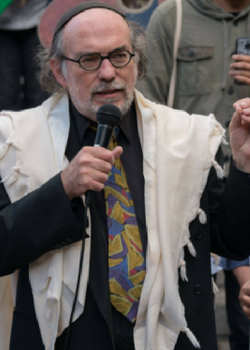What is it that we celebrate, when we celebrate Presidents Day? As a kid, I was taught that George Washington was some sort of moral paragon. When he chopped down the cherry tree, he refused to lie about it. After he had served his term as President, he went home to his farm. He had no desire to be a president for life, and this solidified the country on the path of democracy. There would be no lifetime rulers in the United States, as opposed to in Europe where kings and queens reigned.
Abraham Lincoln grew up in poverty and from low beginnings, he rose to the heights of American politics. He freed the slaves. He saved the Union. He was merciful to the Southerners whom he defeated. He was a pious master of politics and poetics. His address at the dedication of the cemetery in Gettysburg is lauded as a highlight of American letters.
As we matured we realized that the cherry tree story most probably never happened. Moreover, Washington was an enslaver who was not an “enlightened” master (whatever that might be), but could be cruel to his enslaved people, and when they escaped he had them hunted down and returned to his land as his property.
We learned that while Lincoln personally was anti-slavery, he did not make it the center of his politics until it was strategically efficacious to do so during the civil war when he freed the Confederate slaves to ruin the Southern economy and have the formerly enslaved people join the Union army. We learned that the war against the south was prosecuted and won only with the assistance and active participation of Africans, despite the Dred Scott decision which denied Africans any rights that white Americans would have to respect. We learned that those who advocated most heartily for mercy toward the former Confederate soldiers and political leaders were fine with the reinstitution of racial apartheid. This led to Black Codes and the legal situation known as Jim Crow.
So what is it that we celebrate when we celebrate Presidents Day?
When Martin Luther King Jr. came to Washington, DC in 1963, one hundred years after the Gettysburg address, he demanded that the nation honor Lincoln’s declaration that all men were created equal. Lincoln willfully re-read the founding documents of the United States—marking the founding to the Declaration of Independence rather than the Constitution. King then read Lincoln expansively to demand that the United States grant equality to all Americans, Black or white.
When we celebrate Presidents Day, we celebrate the possibility that the promise of this country founded and ruled by all too human, flawed people will be fulfilled despite the most ardent desires of those people. When we celebrate Presidents Day we celebrate it in the spirit in which a verse from Leviticus was inscribed on the Liberty Bell: “You shall proclaim throughout the land for all its inhabitants.” Leviticus 25:10. The spirit of messianic presentism. Living toward a future of equality now—despite all signs to the contrary.

